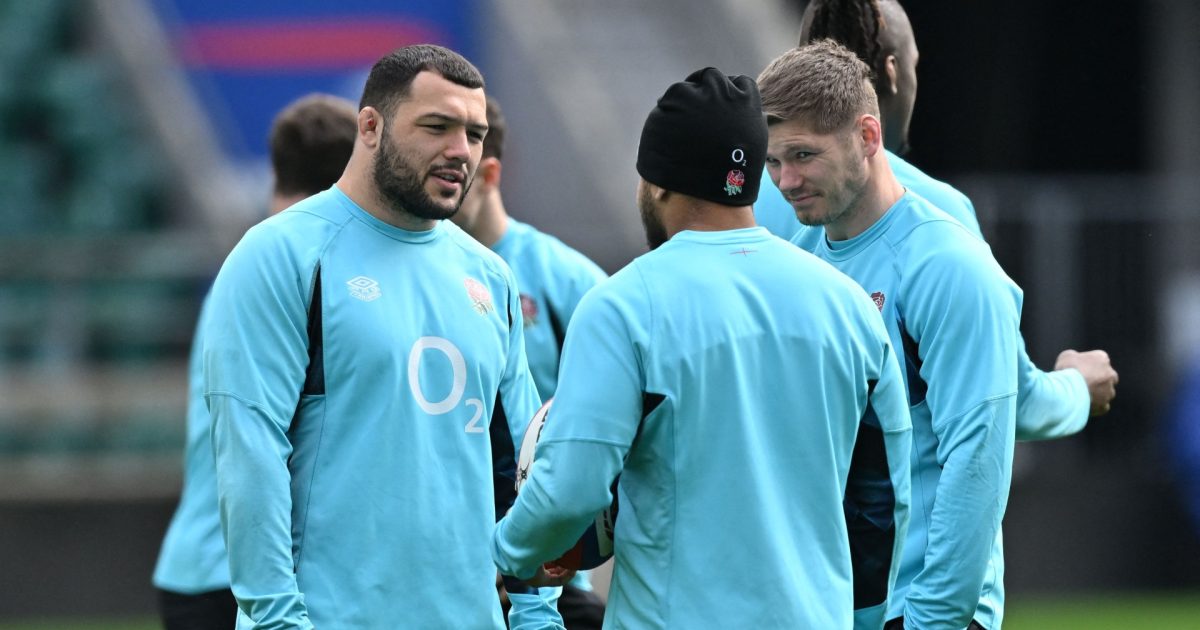The Cockerill verdict on first time England skipper Ellis Genge

Ellis Genge will lead England for the first time against France on Saturday lifted by praise from an early mentor for shackling his wilder instincts. Owen Farrell’s demotion to the bench for the Guinness Six Nations title showdown at Twickenham has resulted in Genge being installed as captain, continuing his rise from Bristol council estate to the most prestigious role in the English game.
The 28-year-old Genge first made any impression when he left Ashton Gate for Leicester in 2016, coming under the guidance of the Tigers’ director of rugby Richard Cockerill, who now oversees the England scrum. As a belligerent rookie, unafraid to take on all comers, the challenge facing Cockerill was ensuring the marauding prop kept his ferocity in check.
“At that point I was just happy to keep him out of trouble!” Cockerill joked when asked if he had spotted the potential of Genge back then to go on and become England skipper. “A few months into him being at Leicester, we had just had a forwards meeting and were in a bit of jovial mood and I said, ‘Gengey, do you want a fight?’ And he went, ‘Who’s going to coach the session’?
“Ellis is great fun and as long as he keeps that sense of humour in what he is doing, he will go from strength to strength. He was a really aggressive young man, young player, with a lot of natural ability who just needed a lit bit of guidance in how to channel it.
“I’m not sure that he has mellowed, I just think that he can control it a lot better. He now decides how he behaves and he can bring that to whatever part of the game he needs to. When he first came to Leicester I thought it was the perfect move for him, sort of his spiritual home and he has settled in very quickly.
“The crowd and his teammates fell in love with him very quickly because of the passion and aggression he showed on the field. He has matured and developed really well. He has worked really hard at his game both on and off the field and he has matured into a great person and is a wonderful player.
“He leads by example through how he plays. He is not a big talker but he is a big man on action and that is the way he leads – through his actions. He is very keen to do that against France.”
Cockerill has an affinity with the French game having played and coached across the Channel and once the Six Nations is over he will take up the role of Montpellier’s forwards coach. But his immediate task is ensuring England strike the right balance between facing down an enormous France pack and ensuring they do not get dragged into the trenches.
“I like the passion and the rawness about French rugby. They love their forward play – not that the English don’t – but that appeals to me having played them myself,” Cockerill said. “We know what physical attributes they bring, they are a big team. Tactically they are very good, but we like to think we’re a physical team as well and it’s a great opportunity for us to test our set-piece.
“The collision is really important and we know the set-piece is going to be really important. Certainly, if you can match and at times dominate the set-piece, emotionally and psychologically that’s a big win for the opposition.
“We are going to have to be aggressive when we need to be and really smart when we need to be. If we are just going to go toe-to-toe, they will cope with that and we’ll potentially play ourselves into trouble.”

























































